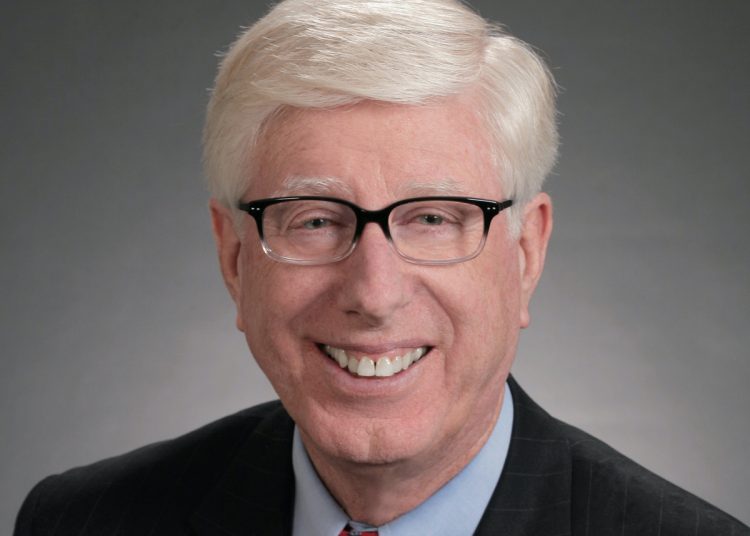DES MOINES, Iowa – The Republican Party of Iowa accused Attorney General Tom Miller of running a “taxpayer-funded slush fund” as president of the National Association of Attorneys General (NAAG). An accusation Miller’s office sharply denies. The group met in Des Moines this week for their annual conference.
Republicans say NAAG takes taxpayer dollars and directs the cash to a slush fund for all-expenses paid trips.
They point to the organization collecting millions of dollars from cases attorneys general tried in their states. NAAG has taken in tens of millions of dollars from high-profile settlements like master tobacco and Volkswagen diesel emission settlements that would otherwise go back to states or consumers.
Republicans highlighted a $600 million settlement with McKinsey & Company, a consulting firm, because of their role in providing sales advice to opioid manufacturers. NAAG received $15 million – nearly double the amount of some states. Iowa only received $4.7 million over five years from McKinsey.
“Tom Miller needs to empty the NAAG slush fund, return money back to states and consumers, and resign his post as president,” Republican Party of Iowa Chairman Jeff Kaufmann said in a released statement. “This is Chicago-style corruption and it’s being executed by Tom Miller. Americans, and specifically Iowans, deserve better than this grift.”
Miller pointed to the work that the association does.
“This week’s conference in Des Moines was an example of what NAAG does best: Bring a bipartisan group of AGs and their staffers together to learn and collaborate. I heard many compliments regarding the balanced agenda and relevant content. I am confident that collectively, the AG community is now better prepared to protect consumers, particularly children and seniors, from emerging technology threats,” he told The Iowa Torch.
“Three Republican AGs (from Tennessee, Nebraska, and Oklahoma) led panel discussions, and staffers – including deputy AGs, line attorneys, and investigators — from 12 Republican-led AG offices attended,” Miller added. “NAAG assists us in protecting constituents by funding conferences, training, and grants for investigations. This is how our offices hold people accountable, from small-time scammers to big tech companies and opioid makers and distributors.”
At the conference, Miller challenged anyone to provide an example of a NAAG grant issued improperly or without bipartisan support.
He said that some Attorneys general had raised legitimate questions and concerns about the association.
“I have had productive discussions with these AGs, and the NAAG Executive Committee has formed a bipartisan subcommittee to study NAAG’s bylaws and functions and make recommendations. We are considering several proposals for structural reform. I believe that agreement is very possible on these issues. AGs share a common goal of helping NAAG fulfill its mission: To foster bipartisan engagement and cooperation on legal and law enforcement issues. Doing so will help all of us protect and serve our constituents, regardless of party or ideology,” he concluded.
Lynn Hicks, the chief of staff for Attorney General Miller, told The Iowa Torch that NAAG is the steward of several funds made up of money directed to it according to past settlements and by agreement of attorneys general involved in each matter. NAAG administers these funds, the use of which is limited by previous court settlements and fund rules and regulations created by attorneys general, on behalf of its members and holds them separately from NAAG operating accounts.
Hicks pointed out that the money in these accounts is held for attorney general use and benefit, and NAAG staff does not control how the money is spent. Instead, he noted, bipartisan committees, currently chaired by Republican attorneys general, are responsible for evaluating grant requests and disseminating any grant funds for use by requesting attorney general offices. He added that the association provides annual reports to members on each settlement fund, as required by the rules and regulations governing each fund.
Miller been a member of the Financial Services Fund Committee for all but one year since its inception. He said the committee never preferred a Democratic request over a Republican request, and almost every request is for a large bipartisan group of states.
“The mood and tenor of the group is collegial, not tense or partisan. It is, in my opinion, a model of bipartisanship. We address issues concerning grants, solve problems, work together, respect one another, and find significant ways to serve our constituents,” Miller stated.
Hicks also challenged the Iowa GOP’s comments about the McKinsey settlement.
“It is inaccurate to suggest that NAAG is keeping $15 million from the settlement,” he said. “About half of the money will be available as grants for AGs to apply. As per the agreement of all AGs involved, $7 million went to NAAG to reimburse the Financial Services Fund for grant funds awarded and used by AGs for opioid investigations. It is important to restore money to the fund; otherwise, AGs may lack the resources to pursue other matters to protect consumers from deceptive, unconscionable, and unfair practices.”
“In addition, $212,000 from the settlement went to reimburse nine states for their direct costs in the McKinsey case. The remainder of the money is being used to establish an online repository of opioid industry documents, maintained by the University of California-San Francisco and Johns Hopkins University,” Hicks added. “Already, these documents are providing a wealth of new information on the actions that led to the opioid crisis.”
Hicks said that 53 attorneys general agreed to the terms of the settlement and filed it in their respective state courts.
He provided a copy of the letter from the executive committee that handled the settlement that includes specific instructions for how NAAG should administer the funds it received (read the letter at the end of the article):
Read below:
2021.03.03-FINAL-McKinsey-Settlement-Funds-DirectionsThe campaign for Miller’s Republican challenger, Brenna Bird, said the association needs change.
“it’s clear things would need to change at NAAG, but Brenna Bird would want to work with other AGs to help Iowa and our country. For example, the drug problem (meth and fentanyl) and human trafficking are important problems that we can address on in a bipartisan way. As a part of the organization, Brenna would work on getting NAAG back to being an effective, non-partisan organization, while making sure it is transparent and accountable,” Matthew Deike, the campaign coordinator for Bird’s campaign, told The Iowa Torch.
Editor’s note: We reported that Attorney General Miller has been the chairman of the Financial Services Fund Committee for all, but one year since its inception, which is incorrect. He has been a member of the committee for that amount of time. We apologize for the error and it has been corrected in the story.
















